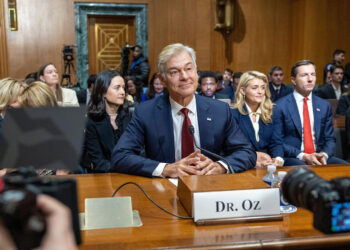General practitioners (GPs) face difficulties in screening for chronic kidney disease (CKD) using the urine albumin-creatinine ratio (uACR). The reasons include doubts about its clinical utility, confusion over the various available biological parameters, and the need for increased collaboration with nephrologists. This conclusion was drawn from a qualitative survey published in the Clinical Journal of the American Society of Nephrology, which aimed to identify the obstacles GPs encounter when implementing CKD screening.
Limited Uptake
Since 2021, the measurement of albuminuria has been recommended by the Haute Autorité de Santé for the early detection of kidney damage. The interpretation of albuminuria is based on the uACR. Since 2023, uACR has been systematically recommended to screen for CKD in patients with diabetes and hypertension, in combination with blood creatinine testing. This approach has been integrated into the system of Remuneration for Public Health Objectives (primary care pay-for-performance). Since its implementation, this system has facilitated CKD screening in the target population. However, coverage remains inadequate.
A 2023 estimate indicates that only 45% of individuals with diabetes and 30% of those with hypertension underwent screening in the past year. This survey, conducted through face-to-face interviews, aimed to assess the practical challenges faced by GPs. It was carried out among a panel of GPs from the Occitanie region in southern France, selected to represent a range of practice settings.
Confusion Over Test Options
Although GPs have implemented recommendations for annual uACR measurements, many lack an understanding of their clinical significance, particularly in target populations. Many GPs lack clear clinical goals for performing the test and remain uncertain about the benefits for patients already receiving measures for nephroprotection.
The authors emphasized that “Pay-for-performance indicators and lack of knowledge about new drugs limit GPs’ ability to identify target populations and perform urinary protein assays.” They added: “Revising pay-for-performance indicators, drafting multidisciplinary guidelines, increasing multiprofessional collaboration, and patient awareness should be considered.”
Additionally, the study found that referring patients to specialists based on abnormal values does not always lead to changes in care, reinforcing a more cautious, wait-and-watch attitude.
Many GPs expressed a desire for “co-management” with nephrologists, particularly through tele-expertise, but would like this approach to optimize the identification and care of patients and ensure their up-to-date knowledge. Some also acknowledged that their understanding of therapeutic innovations, such as sodium-glucose cotransporter-2 inhibitors, is insufficient to influence therapeutic decisions.
Another key concern expressed was the confusion surrounding the wide variety of available and recommended tests, such as uACR, microalbuminuria, and total proteinuria. GPs admitted to being confused when to use each test and, in some cases, laboratories substituted tests without their approval. This inconsistency adds to the challenge of effectively interpreting the tests.
Better Collaboration
GPs face difficulties in effectively educating patients, particularly those who are asymptomatic during already packed consultation schedules. Some also question the clinical relevance of these tests in certain situations, such as for older patients, and mention practical difficulties, such as urine collection.
Proposed Solutions
GPs suggested clearer, harmonized recommendations and simplified algorithms for decision-making. They also emphasized the importance of multidisciplinary cooperation involving biologists, nurses, pharmacists, and nephrologists. Additionally, they advocated public health campaigns to raise awareness of renal and cardiovascular risks.
This story was translated from Univadis France using several editorial tools, including AI, as part of the process. Human editors reviewed this content before publication.
Source link : https://www.medscape.com/viewarticle/gps-face-challenges-chronic-kidney-disease-screening-2025a10001h5?src=rss
Author :
Publish date : 2025-01-22 10:46:42
Copyright for syndicated content belongs to the linked Source.














